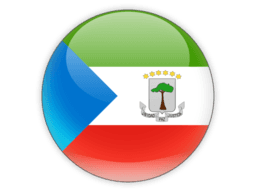
Regions of Equatorial Guinea
Explore 8 regions
Cities of Equatorial Guinea
Discover 13 cities across 8 regions
Bioko Norte(2)
Bioko Sur(1)
Centro Sur(1)
Djibloho(1)
Litoral(1)
Equatorial Guinea is a small country located in Central Africa, consisting of a mainland region and five islands. Its capital city is Malabo, and its official languages are Spanish, French, and Portuguese. The country has a population of approximately 1.5 million people.
The economy of Equatorial Guinea is largely dependent on the production and export of oil and gas. It is one of the wealthiest countries in Africa in terms of GDP per capita, but income distribution is highly unequal, and the majority of the population lives in poverty. The country has a mixed record on human rights, with concerns regarding freedom of speech and political opposition.
Equatorial Guinea is known for its unique wildlife and biodiversity, with a range of endemic species, such as the Bioko colobus and the Bioko Island snake. The country also has a rich cultural heritage, with a blend of African and European influences. Its music and dance traditions, such as the balélé and fang acoho, are particularly notable.
Telephone Code
240
Local Emergency Phone
Local numbers only
Vaccinations
An International Certificate of Vaccination for yellow fever is required for travelers arriving from countries with a risk of yellow fever transmission and for travelers having transited through the airport of a country with risk of yellow fever transmission. Proof of polio vaccination is required, a polio booster dose required for those who have completed a normal series of the polio vaccine. See WHO recommendations.
Climate
Tropical; always hot, humid
Currency (Code)
Cooperation Financiere en Afrique Central francs (Central African CFA franc, XAF)
Electricity/Voltage/Plug Type(s)
220 V / 50 Hz / plug types(s): C, E
Major Languages
Spanish 67%, other (includes Fang, Bubi, Portuguese, French) 32.4%
Major Religions
Nominally Christian and predominantly Roman Catholic, Protestant
Potable Water
Opt for bottled water
International Driving Permit
Suggested
Road Driving Side
Right
Tourist Destinations
Malabo; Monte Alén National Park; Cascades of Moca; Bioko Island; Bata
Major Sports
Soccer, swimming
Cultural Practices
In some groups, if greeting someone with higher status, it is customary to bow slightly so that your head is lower than theirs.
Tipping Guidelines
Tipping is not expected in most restaurants and hotels except at establishments frequented by expatriates. Guides and private drivers also appreciate a tip of around 10%.
Souvenirs
Traditional African cloth; soapstone, ivory, and wood carvings; woven baskets, tribal masks
Traditional Cuisine
Succotash — a salad-like dish consisting of corn, lima beans, sweet peppers, tomatoes, and other vegetables sautéed in butter
Geography
Area
total: 28,051 sq km
land: 28,051 sq km
water: 0 sq km
Climate
tropical; always hot, humid
Natural resources
petroleum, natural gas, timber, gold, bauxite, diamonds, tantalum, sand and gravel, clay
People and Society
Population
1,737,695 (2023 est.)
Ethnic groups
Fang 85.7%, Bubi 6.5%, Mdowe 3.6%, Annobon 1.6%, Bujeba 1.1%, other 1.4% (1994 est.)
Languages
Spanish (official) 67.6%, other (includes Fang, Bubi, Portuguese (official), French (official), Portuguese-based Creoles spoken in Ano Bom) 32.4% (1994 est.)
Religions
Roman Catholic 88%, Protestant 5%, Muslim 2%, other 5% (animist, Baha'i, Jewish) (2015 est.)
Population growth rate
3.36% (2023 est.)
Government
Government type
presidential republic
Capital
name: Malabo; note - Malabo is on the island of Bioko; in 2017, some governmental offices began to move to a new capital of Ciudad de la Paz (formerly referred to as Oyala) on the mainland near Djibloho, but a lack of funds has halted progress on construction
Economy
Economic overview
growing CEMAC economy and new OPEC member; large oil and gas reserves; targeting economic diversification and poverty reduction; still recovering from CEMAC crisis; improving public financial management; persistent poverty; hard-hit by COVID-19
Real GDP (purchasing power parity)
$23.924 billion (2021 est.)
Real GDP per capita
$14,600 (2021 est.)
Agricultural products
sweet potatoes, cassava, roots/tubers nes, plantains, oil palm fruit, bananas, coconuts, coffee, cocoa, eggs
Industries
petroleum, natural gas, sawmilling
Exports
$8.776 billion (2019 est.)
Exports - partners
China 34%, India 19%, Spain 11%, United States 7% (2019)
Exports - commodities
crude petroleum, natural gas, industrial alcohols, lumber, veneer sheeting (2019)
Imports
$6.245 billion (2019 est.)
Imports - partners
United States 22%, Spain 19%, China 12%, United Kingdom 6%, United Arab Emirates 5% (2019)
Imports - commodities
gas turbines, beer, ships, industrial machinery, excavation machinery (2019)
International Airports in Equatorial Guinea
Discover 2 major airports serving Equatorial Guinea
Mark Equatorial Guinea as Visited
Add Equatorial Guinea to your personal travel map and track your journey around the world. Share your adventures and see your progress grow!